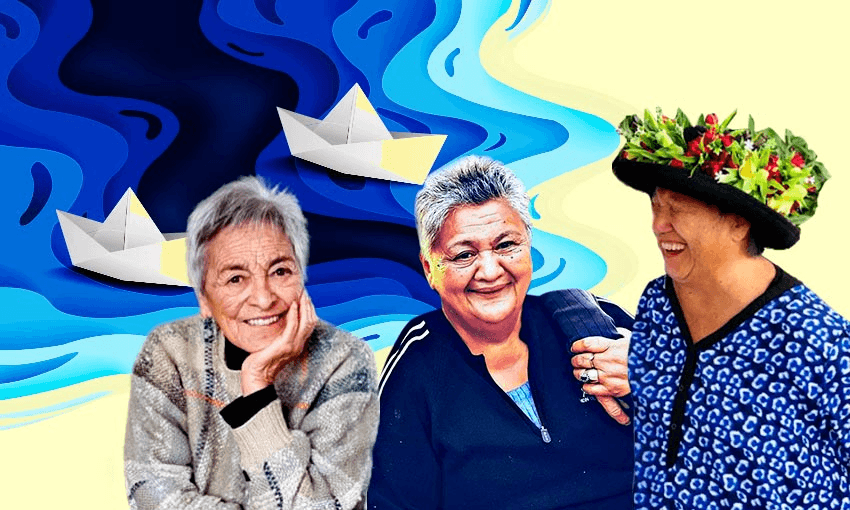In celebration of Super Saturday, three much-admired whaea from Northland and Waikato share their words of wisdom and encouragement on the Covid-19 vaccine.
“This is a māuiui that can’t be taken for granted,” says whaea Ngāpare Hopa (Waikato-Tainui). Whaea Ngāpare is a professor, Hukanui Marae ruruhi, and also the first Māori woman to gain a PhD from Oxford.
Whaea Ngāpare still lives in her parents’ house in Gordonton in the Waikato. And it’s those close links to the past that underscore the importance of vaccinations. Whaea Ngāpare was born in 1935, just 17 years after the Spanish Flu pandemic in which over 2,160 Māori died, a rate around eight times higher than that of Pākehā. “We didn’t talk to my parents about it much because it was so painful.”
“We ought to make sure we’ve learnt from that history,” she says. Ka mua, ka muri, walking backwards into the future.
As we’ve seen, and continue to see overseas, Indigenous peoples have suffered disproportionately from Covid-19 illnesses and deaths. That means we need to do whatever we can to protect our people, she says.
And while the Covid-19 vaccine isn’t traditional rongoā, “it’s a new kind of bug, so we need to rethink,” she says.
“I know some of our people are hoha,” she says. “But this is a very different type of flu – this is a really pernicious one, it’s got a different face and a different wero.”
Whaea Kathy Caldwell (Ngātiwai) lives in Whāngarei. Originally from beautiful, coastal Whananaki in Northland, she’s a trustee on the Ngāti Wai trustboard.
Over the the last two months, whaea Kathy has been delivering food vouchers to whānau in her rohe. When there’s time, she’s been connecting with whānau over the phone to talk about vaccinations.
She got her first vaccination in May this year at the Ngāti Hine Health Trust Covid-19 vaccination centre and she’s encouraging anyone who hasn’t been fully vaccinated yet to follow her lead and get the jab this weekend.
“My kōrero is that we need to keep our whakapapa safe,” she says.
With three of her own grandchildren too young to get vaccinated, Kathy says vaccinating is part of our collective responsibility to keep them safe from Covid-19. “Our under-twelves” she says, “they’re our taonga.”
The trust board and local health provider Kia Ora Ngātiwai had already organised a vaccination event to go ahead this weekend, “so consequently Super Saturday is the same day we planned this which is lovely”. There will be spot prizes up for grabs too: petrol vouchers, grocery vouchers and a night’s stay at a resort in Tutukaka. And there’s free hāngi while you wait.
If you’ve got nerves or worries around the vaccine, whaea Kathy’s advice is to talk to a doctor or a health expert. At their vaccination events today at Whananaki Beach hall and Mōkau marae, Dr Shane Reti and medical experts will be there to answer questions. “We’ll make sure you get the time to talk to them to make an informed decision.”
Whaea Meri Barber (Ngātiwai) lives in Helena Bay, on the East Coast of Northland. For the last two years she’s been the kaiako of te reo classes in Whāngarei. Since the latest outbreak, the classes have shifted online.
Beyond teaching, whaea Meri has an affinity for gardening. She always has. As a child, she would help her dad in the garden, riding horses to help plough the land.
With case numbers rising among Māori, whaea Meri is encouraging whānau to get vaccinated as soon as possible “for their own health and wellbeing”.
“Why tolerate such a disease?” she asks. “We need to do something about it, and how better to deal with it than to get vaccinated against it and get our immune system prepared.”
She believes we should be thinking of future generations when making the decision to get vaccinated. “It’s so important for our future generations to stamp out the disease now so that our country is free from it and the future generations,” she says.
